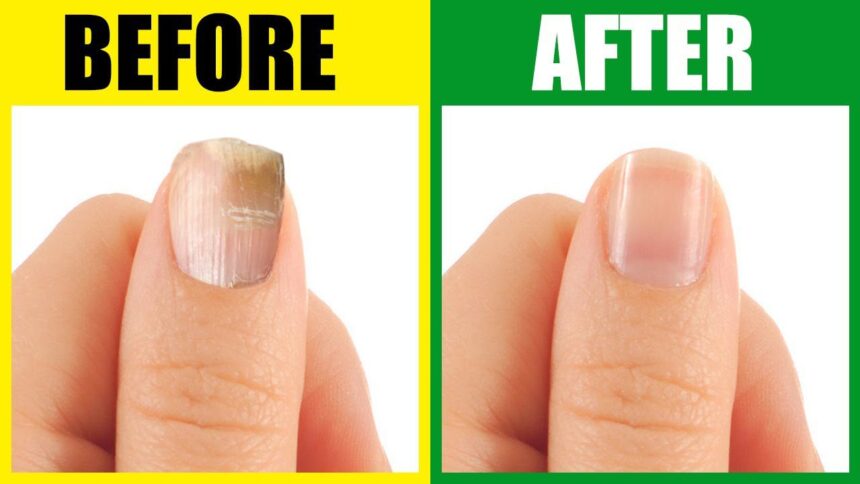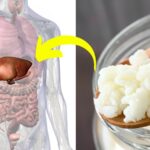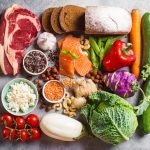Understanding how to remedy brittle nails seems to be a query that many people have. It’s a valuable question because the plethora of remedies available can be overwhelming. Interestingly, I always recommend considering the nail as an indicator to peek deeper inside the body. The nail provides invaluable clues about the body’s internal health.
Much like the symptom of fatigue, brittle nails can stem from numerous sources. Therefore, you have several options – you can either opt for a remedy that strengthens your nails, or you could seek to comprehend what the nail signifies and address the problem at its roots.
Modern Medicine’s Approach and Its Limitations
Unfortunately, modern medicine often revolves around identifying a specific symptom and prescribing a treatment accordingly. But today, we’re going to approach this differently. We’re going to scrutinize the nail and delve into all potential causes for slow-growing nails, brittle nails, nail ridges, or any other nail-related problems.
Through this journey, one or two things might resonate with you as potential causes. For instance, it could be something missing in your diet or something you’re consuming that you shouldn’t be.
The Significance of Protein in Nail Health
Starting with the basics, your nail is primarily composed of protein – a specific type, called keratin. The remarkable aspect of keratin is that it’s very high in sulfur and amino acids. Since proteins are essentially combinations of amino acids, a deep understanding of this particular body tissue can shed light on what you may need to include in your diet.
The two primary sulfur amino acids are cysteine and methionine. Hence, if you consume foods that lack these two amino acids or are incomplete, it might be the reason why you’re facing problems with your nails. If your nails are suffering, it’s likely that other parts of your body are experiencing similar deficiencies.
Your health issues could stem from a deficiency in sulfur – the most common symptom of which is brittle nails. Alternatively, you might lack certain essential amino acids because the foods you’re consuming are not complete in terms of their amino acid profiles.
Implementing a Complete Amino Acid Profile
To avoid confusion and complications, instead of listing foods that lack the necessary amino acids, I recommend consuming foods rich in all the amino acids. Amino acids aren’t just crucial for your nails, hair, muscles, or skin. They’re vital for various biochemical reactions, energy production, digestion, and more. Your body utilizes millions of enzymes that rely on these amino acids.
So, which foods should you consume for a complete amino acid profile? The best sources would be animal products, specifically items like eggs, fish, and meats. Compared to these, legumes or grain-type proteins often lack one or two amino acids, or these amino acids are present in low quantities.
The Role of Hydrochloric Acid in Protein Digestion
An important factor that is often overlooked is the presence of hydrochloric acid in your stomach. Without sufficient hydrochloric acid, you cannot digest proteins adequately to extract the amino acids. If you’re experiencing indigestion, gas, bloating, heartburn, or intestinal inflammation, it’s possible that you have inadequate hydrochloric acid, leading to impaired amino acid absorption.
Protein Deficiency and Its Effects on Appetite
Interestingly, protein intake also influences your appetite. If your diet lacks balanced amino acids, you may find that you’re never fully satisfied after meals. Among all macronutrients like carbohydrates, proteins, and fats, proteins are probably needed as the most critical survival raw material. Consequently, if your food consumption doesn’t meet your amino acid requirements, your hunger won’t subside – you’ll remain perpetually unsatisfied.
Challenges Faced by Vegans and the Importance of Protein Intake
This problem is particularly prevalent among vegans, who often try to source their amino acids from plant-based items and grains. However, to meet their amino acid requirements, they must consume substantial quantities of these foods, inadvertently leading to an overconsumption of carbohydrates.
As a general guideline, you can estimate the amount of protein your body requires by taking 0.64 grams and multiplying it by your body weight in pounds. When your body lacks amino acids, you’ll experience numerous symptoms, including increased appetite without feeling satiated. You might also develop edema in your legs, a swollen belly, or chronic fatigue.
Given that proteins are the most important macronutrient, a deficiency in amino acids can affect your immune system, endocrine system, and reproductive system, besides reflecting in your nails’ health.
The Integral Role of Trace Minerals and Minerals
Next, we’ll discuss the crucial role played by trace minerals and minerals. Trace minerals act as helpers or co-factors (also known as coenzymes) for proteins. For nail growth, you require specific helper minerals or trace minerals to activate these proteins.
The most important mineral for this purpose is sulfur. You can obtain it from foods such as cruciferous vegetables, eggs, meats, fish, garlic, and onion. An alternative could be a product called MSM that is known to help with brittle nails. However, it’s always preferable to derive nutrients directly from food.
Other essential co-factors include zinc, selenium, copper, and magnesium. Zinc can be found in red meat, animal products, shellfish, and seafood. Although a deficiency in magnesium is rare, it can potentially manifest as nail problems. You can get your magnesium from leafy greens.
Calcium, too, plays a role in nail health. However, its presence in the nail is minuscule. A calcium deficiency is unlikely to present itself in the form of brittle nails – more likely, the culprits are other elements mentioned.
Silicon is another popular supplement taken to improve nails since it contributes to collagen formation.
Vitamins Essential for Strengthening Nails
Vitamin C is another vital nutrient for nail health. Although it’s usually obtained in sufficient quantities from leafy greens, sauerkraut, peppers, or lemons, a high sugar intake can interfere with your vitamin C levels.
Biotin, a B vitamin, is commonly taken in high doses to improve nail health. However, your body produces as much biotin as you obtain from your diet. If you’re deficient in biotin, it’s likely due to an imbalance in your gut microflora rather than your diet. This could be a result of antibiotic use, an existing gut issue, poor diet, or insufficient intake of probiotic or prebiotic foods.
Biotin-rich foods include chicken liver, beef liver, eggs, salmon, and pork. Other factors contributing to biotin deficiency might include high alcohol consumption, certain medications, low hydrochloric acid levels, intensive exercise, or advanced age.
Vitamins B6 and B12 can also influence nail health. B6 contributes to protein production, while B12 affects the blood flow to the nails. Any form of anemia, whether due to a deficiency in B12 or iron, can manifest as brittle nails.
Choline, another B vitamin, can be deficient if you have a genetic factor that inhibits choline absorption. This can increase your risk of developing a fatty liver. For a high choline diet, consume more egg yolks.
Fat-Soluble Vitamins for Healthy Keratin
Finally, to maintain strong keratin, two fat-soluble vitamins are of utmost importance: Vitamin A and Vitamin D. It’s crucial to get your Vitamin A from sources like egg yolks, fish, animal organs such as liver, or even cod liver oil. Spinach and similar sources provide beta-carotene, which is converted into Vitamin A, but only a small amount.
Vitamin D is relatively harder to derive from food sources. While cod liver oil and certain fatty fish or seafood do contain some Vitamin D, it is best obtained from sun exposure.
In conclusion, while there are numerous potential remedies for brittle nails, it’s always wise to delve deeper to understand and address the root cause. Whether it’s diet, lifestyle, or an underlying health issue, giving your body the nutrients it needs can ultimately restore the health of your nails.











